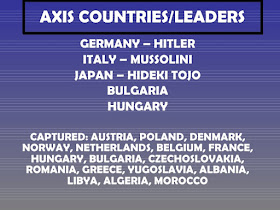Dad took a train from North Carolina to San Diego, California via the southern route of the United States. The year was 1943. San Diego, CA was the location of the Marines Corps military base. Of course, his battalion traveled Jim Crow style, which meant uniformed men of color in segregated train cars located at the rear of the train. Smoke and dust permeated the air of the rear train car; this was also where coal was placed into the engine.
Dad recounted how they stopped every four hours to exercise while on route to San Diego. Lunch was brought outside, because the colored men were not permitted to eat inside railroad dining cars. The white officers of the 51st Battalion, however ate inside the dining cars. Captured German prisoners of war traveled with better amenities and treatment than the Montford Point Marines. Meanwhile, the Colored enlisted men socialized with each other and developed a camaraderie. I will write more on the preferential treatment that Axis POWs received over African Americans in the future.
 |
| Source:123rf.com Vintage Map of San Diego |
When dad arrived in San Diego, CA, the 51st Defense Battalion were not immediately deployed. The military leaders were not exactly sure what to do with the men. Additionally, Dad had no idea where in the Pacific or when he was going to be shipped out during World War II. World War II contained two theatres of war: The Pacific and The European.
The Allies consisted of the following countries: France, Britain, United States, and the Soviet Union. Allied countries were opposed by The Axis Powers. The Axis Powers were a military and political alliance between Germany, Italy and Japan. The Axis powers desired dominance in their respective area of Europe, Mediterranean and the Pacific. They promised not to intervene in each other's objectives and to stop the spread of Communism. Minor Axis countries were Bulgaria, Romania, Hungary, Croatia and Slovakia. Collaborators for the Axis Powers were Vichy France, and Neutral but aiding the Axis was Spain. Italy ended up changing alliances.*
 |
| Source: www.regentsprep.org |
 |
| Source:www.slideshare.net |
Headlines of this day were not very flattering and used derogatory terms.
The leader of Nazi Germany was Adolph Hitler, who sanctioned hatred towards Jews, Catholics, Blacks, Jehovah Witnesses, etc. German propaganda at the time sanctioned the ideal of the "Master" Aryan Race which consisted of blond, blue eyed prototypes. Aryans were supposedly superior to all races and ethnicities. Adolph Hitler convinced the majority of his German people that the "Final Solution" would be in the best interests of the German Empire. "The Final Solution" was the horrific extermination of all Jews who Hitler believed to be the enemy. Countries were invaded by the Axis Powers all around the world. So unsurprisingly, the 51st Defense Battalion were ready to go into battle against the Axis powers.
 |
| Source: www.montfordpointmarines.com Sgt Major Gilbert "Hashmark" Johnson |
"Man, we partied so hard," Dad exclaimed about his early days in San Diego. "We went down to Tijuana, Mexico because it was so close to San Diego over the border. There were 35 cent tequilas, and we were having a good old time! Until the Pittsburgh Courier wrote an article asking about the whereabouts of the "Lost Battalion". The Pittsburgh Courier was a preeminent Negro newspaper that had a large readership across America. All of Black America was watching, and the story made big news during 1943.
.jpg) |
| Source: Blackusa.com |
The story of the "Lost Battalion" was important in many ways. Negro Athlete Jesse Owens triumphantly took home four gold medals in track events at the 1936 Berlin Summer Olympics in Hitler's Germany. Similarly, the 51st Defense Battalion represented an important chapter in American History. The Negro were marginalized within American society through institutionalized racism. Black combat soldiers were ready to prevail against discrimination whether stateside, or anywhere in the world. The Pittsburgh Courier raised questions and demanded answers. Where was the 51st Defense Battalion and why were they missing in action?
 |
| Source: www.biography.com Jesse Owens |
51st Defense Battalion member Clifford Primus' party days would be soon coming to an end.
*Source: www.ushmm.org
No comments:
Post a Comment